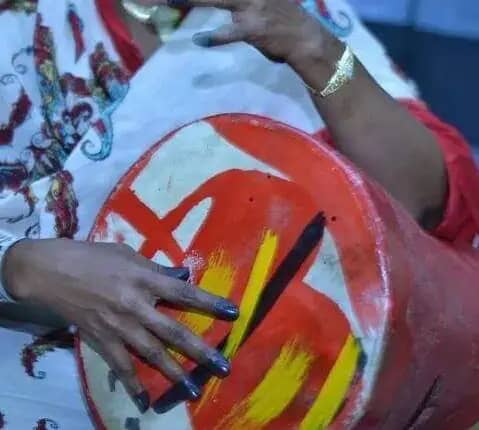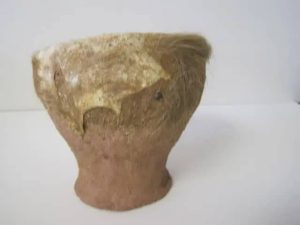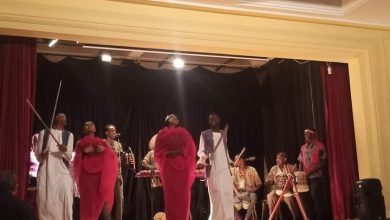“Daluka”: Enduring Legacy Resonates Throughout Sudan

Sudan Events
The daluka, a cherished and time-honored traditional Sudanese folk percussion instrument, holds a rich history closely intertwined with popular singing since ancient times.
Throughout the expansive land of Sudan, particularly in its central regions, the dulcet melodies of the daluka resonate.
This ethereal instrument possesses a distinctive form, boasting a hollow, cone-shaped body crafted from green clay, known as milk, with two meticulously crafted holes.
Notably, one of these apertures is adorned with a sheepskin cover that serves a crucial role in producing its resonant sounds.

Producing enchanting tunes from the daluka is masterful artistry, accomplished by deftly striking the instrument’s surface.
This is achieved by employing the palm of either hand, occasionally employing the elbow or the palm of the hand as well. Its origins trace back to the Sultanate of Darfur, flourishing during the 12th century AH.
The illustrious journey of the Sudanese daluka has been closely tied to significant occasions and festive celebrations.
From its initial inception in the era of the Funj Sultanate, it has captured the hearts of Sudanese musicians and music enthusiasts.
Historical accounts suggest that the introduction of the daluka to Sudan can be attributed to Indian influences. Initially, it was fashioned out of wood and meticulously covered with splendid leather.
Traditionally, three women participate in the rhythmic performance with the daluka. One assumes the role of the lead singer while skillfully playing the larger drum. The remaining two adeptly enthrall onlookers by adroitly striking two smaller drums, referred to as the “large drum” variant.
As the daluka continues to transcend time, its enduring legacy resonates throughout Sudan, summoning cherished memories and sparking joyous celebrations.



